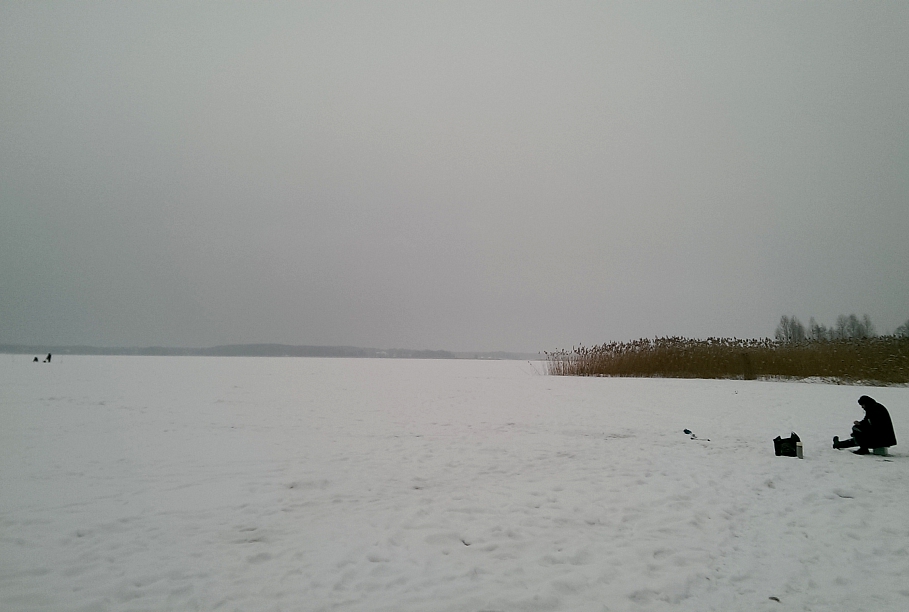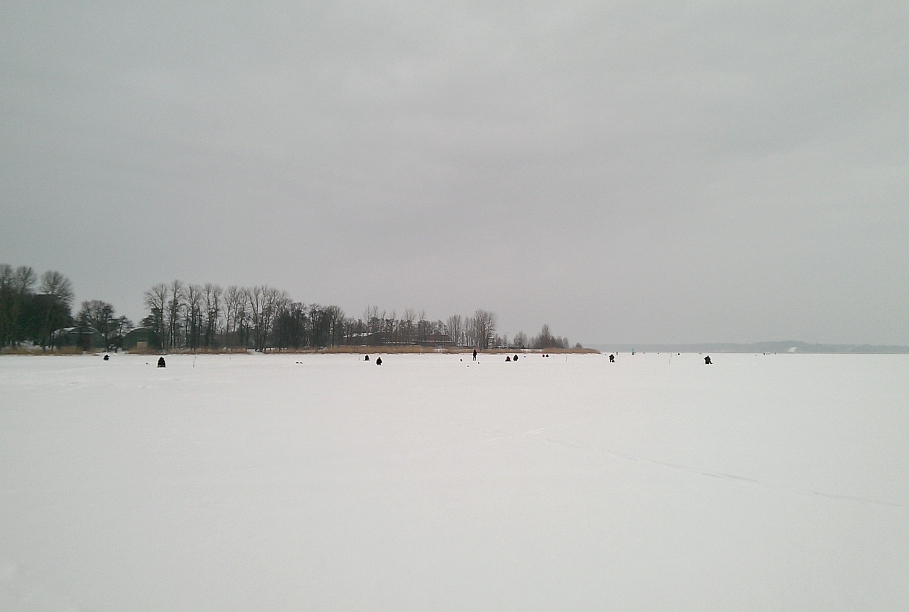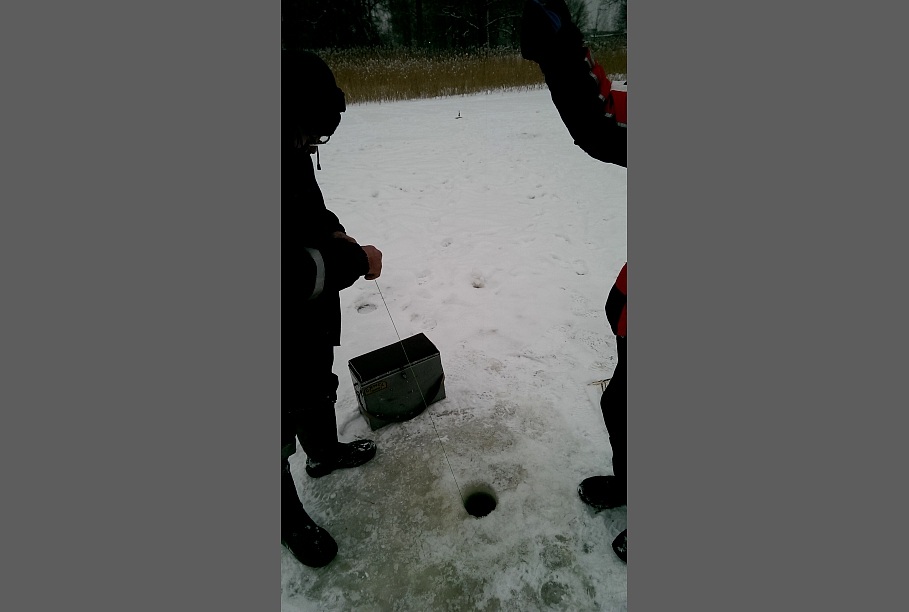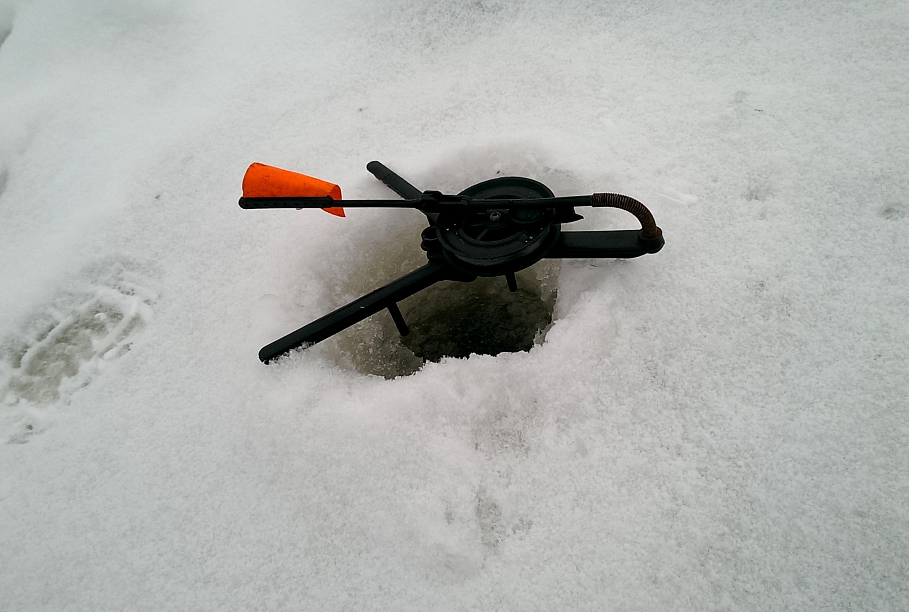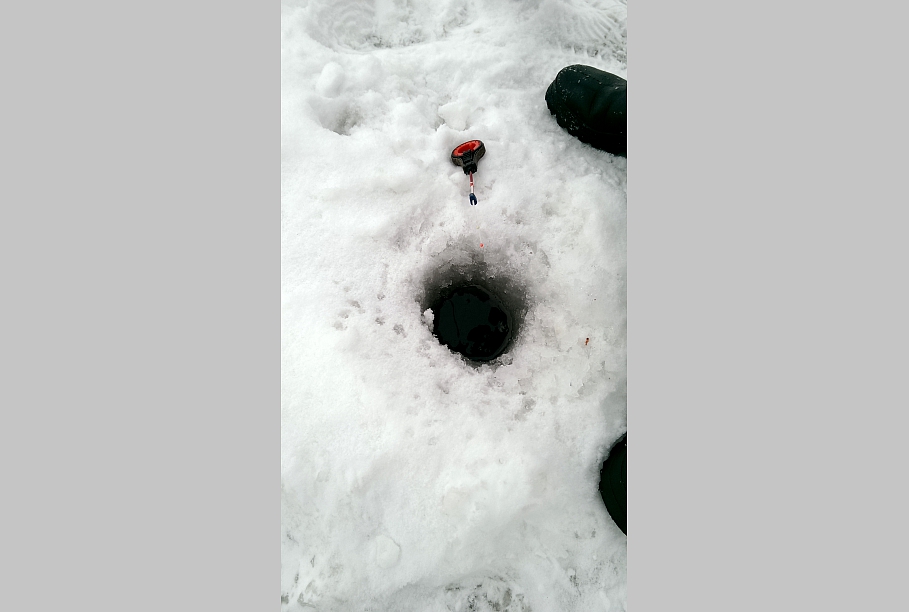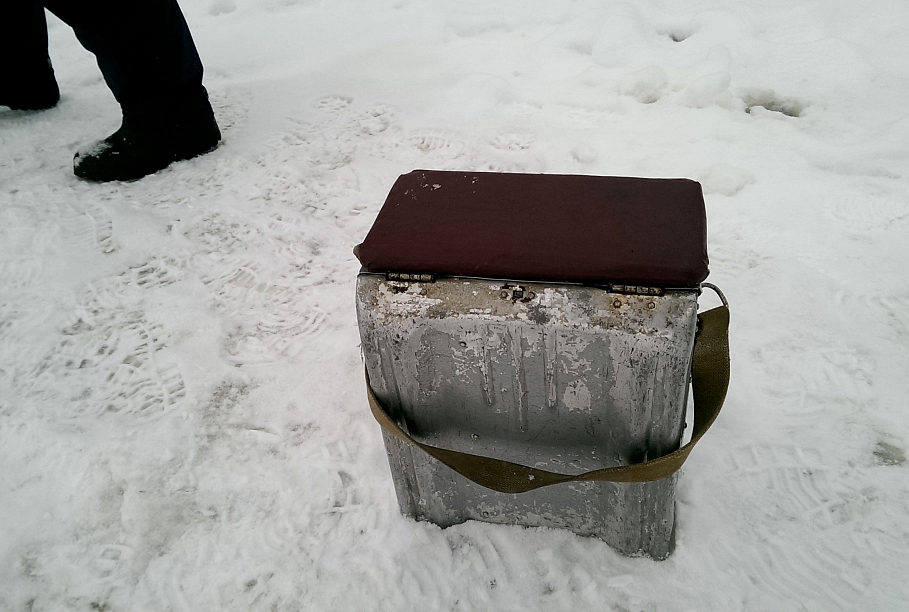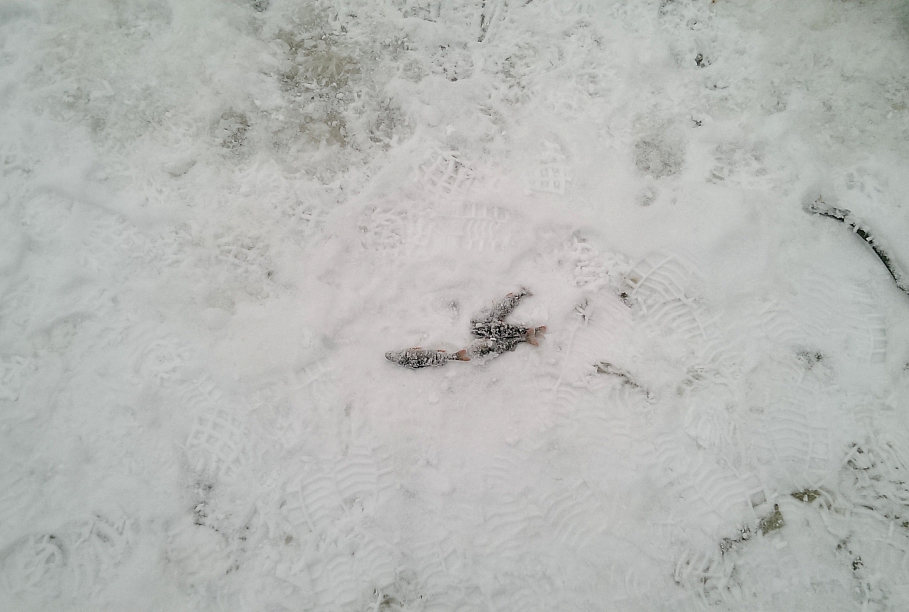Strange is the heart of a northerner. Sitting alone for hours, with few distractions and many opportunities to get frostbitten. It's not ‘a terrific vacation idea’, but it's what many do on winter weekends in Latvia, with contemplation and solitude presumably the goals of this self-imposed exile. Last weekend, LSM went on a visit to Ķīšezers, a Rīga lake popular among ice fishermen, to learn more about their chilly pastime.
What is ice fishing?
It's fishing that takes place through an opening in the ice, with a rod and hook. The fishermen sit by a hole, on a box that usually contains lures, lines, maggots, spare hooks, hot tea, and fishing accessories.
Fishermen dress warm, and even temperatures of twenty below don't discourage them. Holes are drilled with ice augers that can cut through 15 to 20 cm of freeze within 15 seconds. They use spatula-like skimmers to remove slush as new ice forms on the top of the hole. The equipment costs about €80-100, bar the clothing.
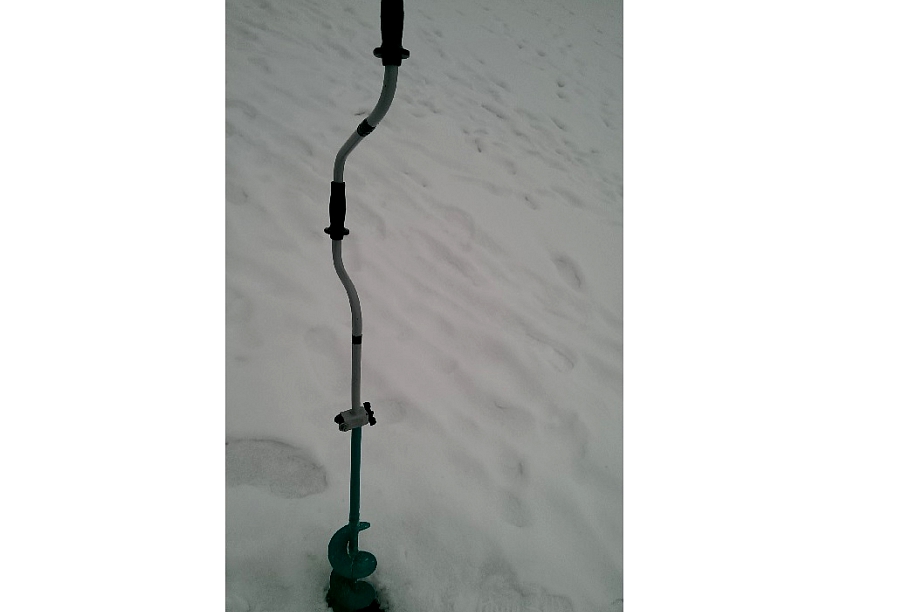
About fifty people, including hockey players and kite skiers, had gathered on a strip of Ķīšezers, in a gulf-like section near the Defense Academy and the thermal power plant. The fishermen's silhouettes were bent forwards and intent on the fishing rod, in a posture that could be described as pensive, like little philosophers on their stones (or in this case, fishing boxes).
Only the hockey players were still on the lake by four in the afternoon - it's rise early and leave early for the fishermen. Their typical day starts with reaching the lake by sunrise and fishing until 1 or 2 p.m. Even that’s stretching it as they said in Ķīšezers the fish are the most active until around 11:30 a.m.
There weren’t any ice shacks or other amenities, except for the occasional Thermos and vodka bottle to keep the frost at bay. Legend says some people have had their old Moskvitch cars fitted with a hatch, cut in the floor in order to facilitate ice fishing from the comfort of a vehicle, though there weren't any of those either.
In fact, once everyone left, the landscape could best be described not as white or wintry but as 'devoid of things'. It's a comforting thought, considering the multitude of stuff around you right now.
Isn’t it dangerous?
The perils of this pastime are well known. In 2013, about 220 people, many of them fishermen, were stranded on floes as winds broke ice off the shore. They were rescued with emergency boats and helicopters.
The tragic potentialities of this scenario entered popular imagination with Rūdolfs Blaumanis’ 1899 novella In The Shadow Of Death, made into a film in the 1970s. Its story centers on a group of people stranded on a floe and forced to survive on raw fish and horse meat, in what amounts to a dark tale exploring the chilly undercurrents of human characters facing death.
There's also the more immediate danger of drowning. The fishermen said they follow the municipality’s announcements about where it's safe to go on the ice. The Municipal Police often ushers away from danger those who don’t.
Despite the warnings, every year ice fishermen become drowning victims. Seven died in the 2015 season. Those who follow the recommendations are also at risk. The thickness of ice varies even when on the average it’s thicker than the 15 centimeters deemed safe by the authorities.
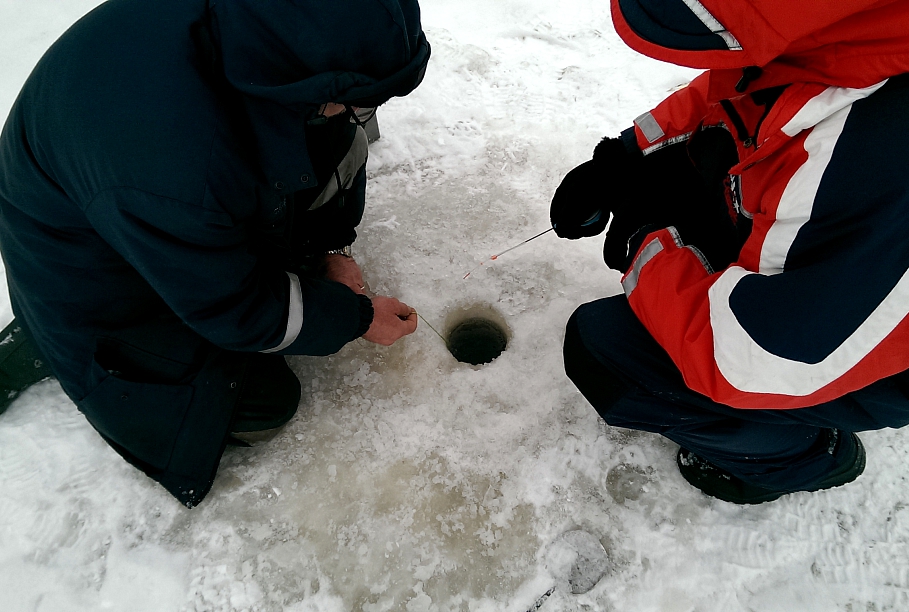
The fishermen
The fishermen - typically males aged 30 and above - are silent, and speak only when spoken to. Perhaps you shouldn't expect otherwise from people whose idea of fun is spending solitary hours in freezing weather.
“I am only talking to you because there’s not much going on below,” one fisherman said, setting the tone for most of the encounters.
On the rare occasions they speak to each other, it is to check whether their comrades are having better luck, with the assumption being that if they are, it is probably time to find a better spot.
Some revealed they had other outdoorsy interests besides fishing, like skiing, hiking, and swimming. Others' interests were betrayed by alcohol bottles near them, conveniently kept at perfectly chilled temperatures by the elements.
At one point a fisherman whom I was observing snapped a stuck fishing line with a big roar. I realized he had not had gloves on the whole time. It was about -10 degrees Celsius. As I listened to the ensuing burst of curses, I remember thinking "These people are much more tougher than I am."
Why ice fish?
Being alone in the modern world is a luxury, and this particular hobby has the benefit of feeding the family - or at least the cat. Some of the fishermen, however, released the fish - ruff, perch, and pike are a common find at Ķīšezers (Ruffe lake) - right after catching them, thus ruling out any material incentives for their holiday occupation. Why do they go fishing then? A bemused “To breathe fresh air," was the closest I got to a reply.
Family tradition could play a role in why ice fishing remains popular. Many said they picked it up from their elders. One Ojārs, a greying man in his fifties, said he first came with his grandfather. As we spoke, Ojārs sat on a sturdy tin ice fishing box inherited from him. Ojārs will likely be the last fisherman in line from his family.
“My children are not interested. I am not making anyone come here,” he said.
Still, it’s difficult to say what's to be found on the ice. Maybe the answer is down below.
Attached to a hook, the strange heart of the northerner plunges under the callous surface, navigating the currents of the lowermost deep. In doing so it perhaps reaches down to the things it can't access in day-to-day life.
